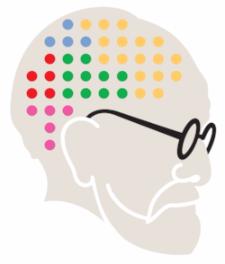Meet the Author: Donald Moss
-
March 28, 2018
7:30 pm - 9:30 pm
Brill Library Book Series
Meet the Author: Donald Moss
Wednesday, March 28, 2018
7:30 pm
The Friends of the Brill Library invite you to an evening with Donald Moss, the author of At War with the Obvious: Disruptive Thinking in Psychoanalysis (Routledge, 2017).
The author situates each chapter of At War with the Obvious at the border between common and psychoanalytic sense. Cumulatively, the book argues that in order for psychoanalysis to retain its original vitality, it must continuously work against becoming “common sensical”. Common sense–clinical and cultural– almost invariably obscures the uncommon/unconscious determinants that would expose its insufficiencies. The most pointed expression of this border tension may be in the chapter, “The Insane Look of the Bewildered Half-Broken Animal.”
Copies of the book will be made available for purchase for $35 at the event. NYPSI students will get a $20 discount on the book.
Donald Moss is a faculty member of the New York Psychoanalytic Institute and the San Francisco Center for Psychoanalysis, and is in private practice in New York City. He is also a member of the Green Gang, a four-person collective that studies the relationships between the human and non-human environments. He is currently the incoming Chair of the American Psychoanalytic Association’s Program Committee, and has been on the editorial boards of the Psychoanalytic Quarterly, the International Journal of Psychoanalysis, American Imago, and Studies in Gender and Sexuality. Over the past 35 years, Dr. Moss has authored more than 50 psychoanalytic papers and three books: Hating in the First-Person Plural (2003), Thirteen Ways of Looking at a Man (2012), and At War with the Obvious (2017).
No CME/CE credits offered.




